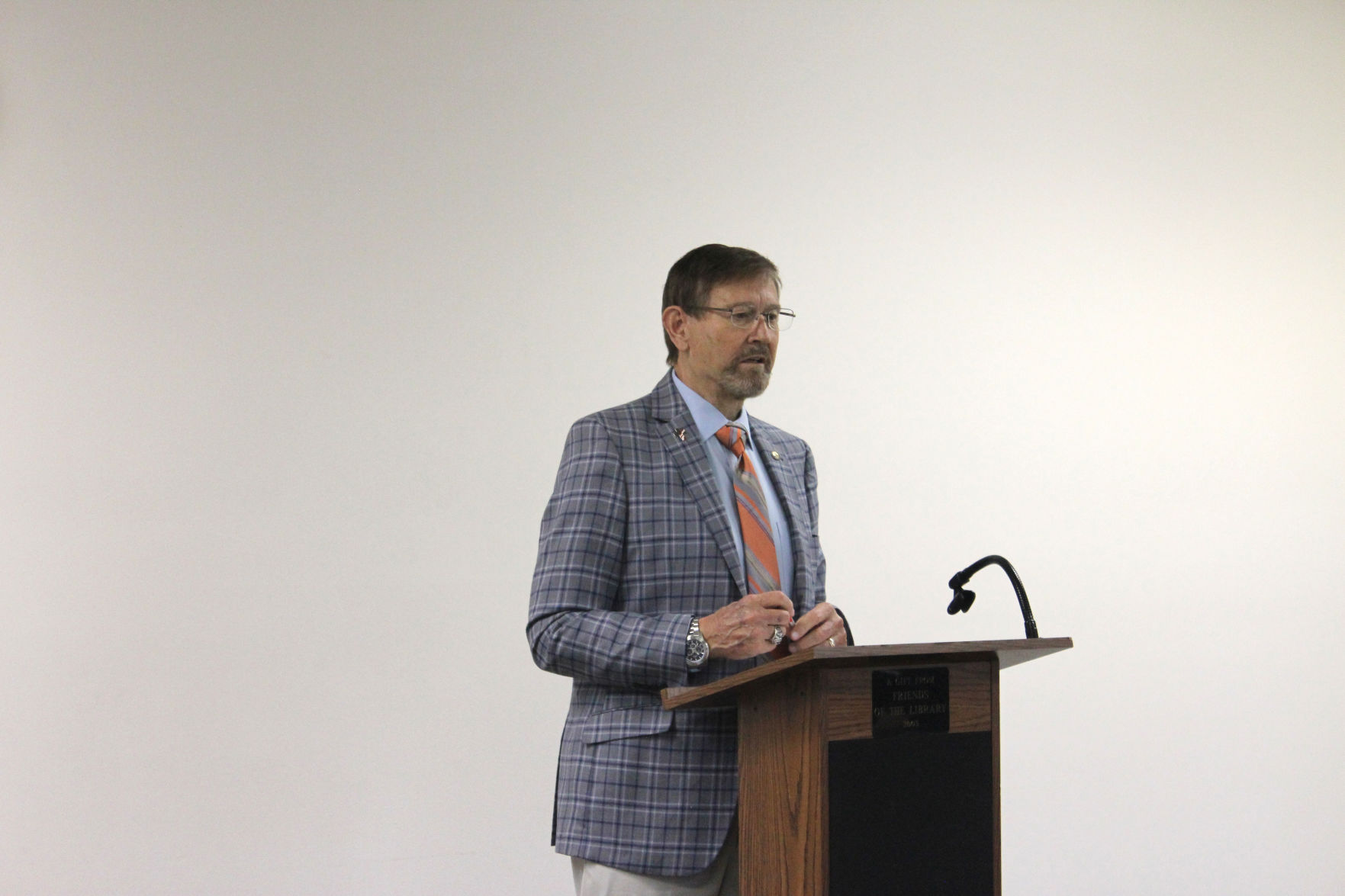From June 11 to 15, the Dodge City, Kansas, location of Archer Daniels Midland participated in the company’s Global Safety Week. One event held the week prior on June 4, brought ADM employees to the Dodge City Public Library, where Kansas Sen. Bud Estes and Dodge City Mayor Kent Smoll spoke along with ADM officials.
ADM observes the company’s annual Global Safety Week to sustain the company’s downward trend in injuries and to reinforce the belief that “Zero is Possible” when it comes to workplace injuries, according to a company press release.
Mark Stewart, of the Dodge City ADM, said officials and employees take the time to stop and recognize safety at their location.
“We take a week out of the year and we focus on safety efforts, and what we’ve been doing to achieve our goals,” Stewart said. “This year we are fortunate in our due diligence really because of what we’ve been focused on and able to accomplish.”
Pete Taschner, ADM vice president, Safety and Health, said in a press release, the safety of ADM employees and contractors is a top priority for the company.
“While celebrating the progress we have made, we also must continue our work toward zero workplace injuries,” Taschner said.
Estes discussed several bills introduced in the Kansas Legislature pertaining mostly to agriculture and safety. He’s the chair for the Federal and State Affairs committee and vice chair for the Agriculture and Natural Resources Committee, and is local to the Dodge City area.
He said there were about 750 bills introduced in his time in the Kansas Senate for the 2017-2018 session. One, pertaining to elevators and co-ops—especially those that handle fertilizer and chemicals—would allow for creating a database of the chemicals held at such facilities.
“First responders, firefighters when they get called to one of these elevators, they can immediately check that location to see what kind of volatile chemicals do they have there,” he said. This will help emergency personnel be better prepared for certain hazards created by chemicals or fertilizers present in a dangerous situation.
Estes said it’s a pretty good program, and the bill also helps with training for employees at the elevators.
Another bill pertained to Tyson trying to build a poultry processing facility in northeast Kansas. The bill was an attempt to outlaw chicken farms, Estes said.
“People try and do legislation to control things that really, normal business should take care of,” Estes said. “They shouldn’t need the Legislature.”
Estes has no qualms about a poultry processing facility coming to his part of the state. Those against the plant in the northeast part Kansas protested mostly against the smell and what the possible affects could be on their communities. Estes said in southwest Kansas, residents are “more used to” the smell and there are ways to abate it.
“Our town doesn’t have near the problem we had years and years ago. So that’s all improved greatly,” he said. “When it comes to the chicken operation, there was literally so much false information that they were just scaring people to death.”
Specifics in the legislation could have ended up hurting the area feed yards also, and Estes wasn’t for that.
“They tried to put in legislation they wanted so many feet set backs to keep these things way back from roads,” he said. “It got pretty silly.”
Estes said Tyson has been scouting other locations, but the southwest part of the state could house such plants.
“We’re certainly not afraid of packing plants or processing plants,” he said. “Our farmers have plenty of room to put these chicken houses out there.”
There are reasons Estes would like for Tyson and other processors to consider this area.
“We have the grain. We have nice flat, wide-open areas,” Estes said. “I know Tyson talked to another community pretty seriously right now, but even if they put one there, Kansas has absolutely no chicken production at all in this state.”
Water is a big concern for Kansas farmers, and for ADM, who processes a large amount of sorghum at their Dodge City location. Sorghum can be a good choice for farmers to conserve what little water they do have available. Estes said a big concern is depleting the Ogallala Aquifer.
“Well, almost at every turn, were talking about getting the farmers to voluntarily pull back and conserve water,” he said. “I owned a large farm for 30 years down at Bucklin, it was irrigated and goodness sakes, everyday we’re trying to conserve water. We’re switching the rotation on our crops—so that’s nothing new to farmers.”
The City of Dodge City is doing its part to conserve water, and have made recent improvements to its reclamation facilities to protect its resources.
“We started probably about five years ago with a brand new water reclamation facility on the north side of town,” Smoll said. “When we started building that it became a real nimby project—which stands for not in my backyard. You can’t believe how many people got really irate over us putting in a water reclamation facility.”
The purpose of the new plant was to take some of the pressure off the south plant.
“The north plant uses all new technology,” he said.
Estes praised the innovations at the water reclamation plants, and said Dodge City does a lot of things right.
Kylene Scott can be reached at 620-227-1804 or [email protected].



